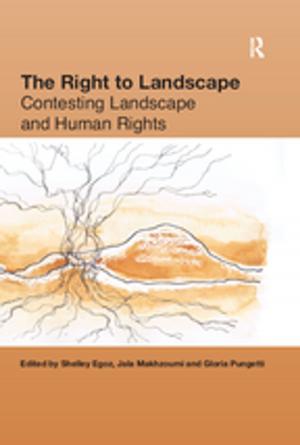Postcolonial Criticism and Representations of African Dictatorship
The Aesthetics of Tyranny
Nonfiction, Reference & Language, Foreign Languages, Language Arts| Author: | Cecile Bishop | ISBN: | 9781351553568 |
| Publisher: | Taylor and Francis | Publication: | July 5, 2017 |
| Imprint: | Routledge | Language: | English |
| Author: | Cecile Bishop |
| ISBN: | 9781351553568 |
| Publisher: | Taylor and Francis |
| Publication: | July 5, 2017 |
| Imprint: | Routledge |
| Language: | English |
The figure of the dictator looms large in representations of postcolonial Africa. Since the late 1970s, writers, film-makers and theorists have sought to represent the realities of dictatorship without endorsing the colonialist cliches portraying Africans as incapable of self-government. Against the heavily-politicized responses provoked by this dilemma, Bishop argues for a form of criticism that places the complexity of the reader's or spectator's experiences at the heart of its investigations. Ranging across literature, film and political theory, this study calls for a reengagement with notions - often seen as unwelcome diversions from political questions - such as referentiality, genre and aesthetics. But rather than pit 'political' approaches against formal and aesthetic procedures, the author presents new insights into the interplay of the political and the aesthetic. Cecile Bishop is a Junior Research Fellow in French at Somerville College, Oxford.
The figure of the dictator looms large in representations of postcolonial Africa. Since the late 1970s, writers, film-makers and theorists have sought to represent the realities of dictatorship without endorsing the colonialist cliches portraying Africans as incapable of self-government. Against the heavily-politicized responses provoked by this dilemma, Bishop argues for a form of criticism that places the complexity of the reader's or spectator's experiences at the heart of its investigations. Ranging across literature, film and political theory, this study calls for a reengagement with notions - often seen as unwelcome diversions from political questions - such as referentiality, genre and aesthetics. But rather than pit 'political' approaches against formal and aesthetic procedures, the author presents new insights into the interplay of the political and the aesthetic. Cecile Bishop is a Junior Research Fellow in French at Somerville College, Oxford.















